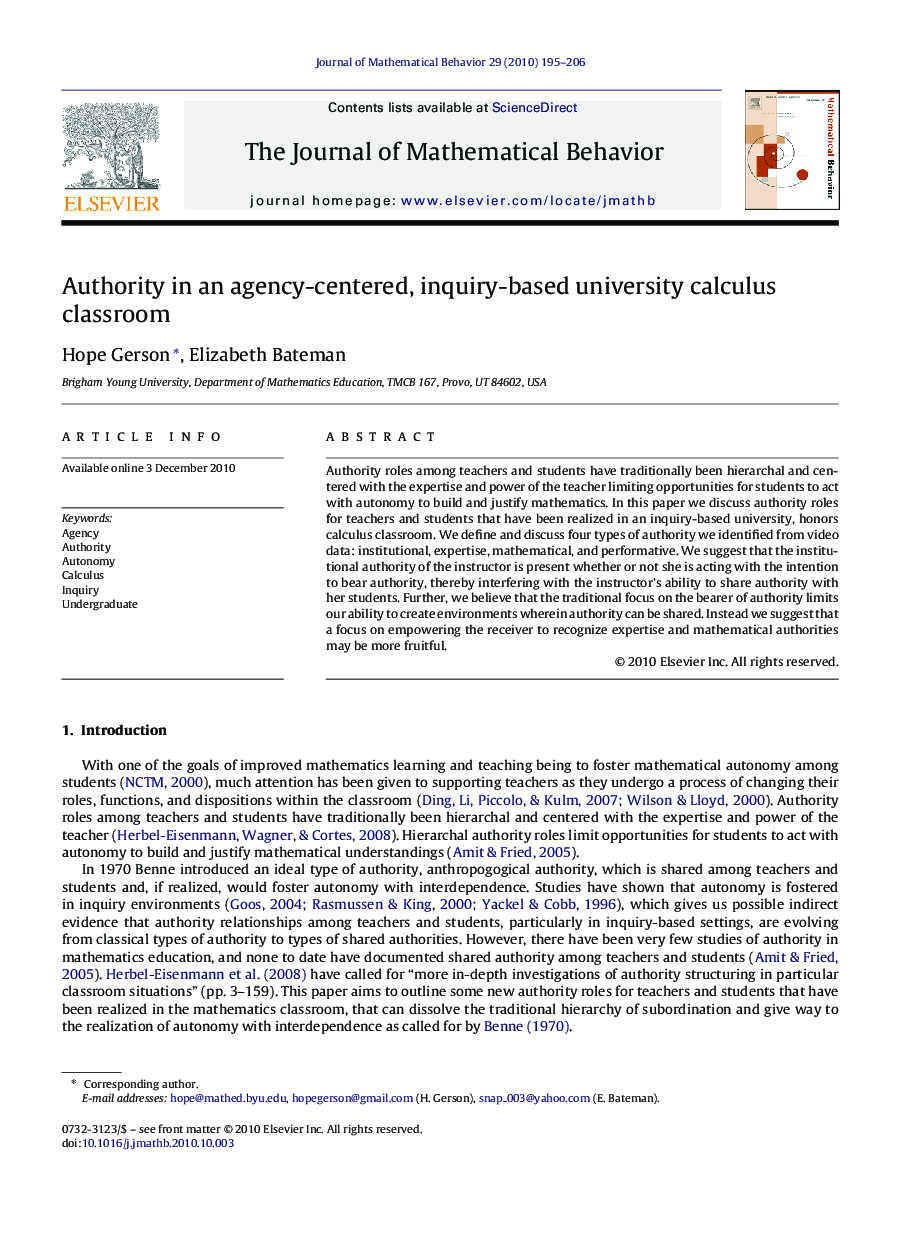| Article ID | Journal | Published Year | Pages | File Type |
|---|---|---|---|---|
| 360885 | The Journal of Mathematical Behavior | 2010 | 12 Pages |
Authority roles among teachers and students have traditionally been hierarchal and centered with the expertise and power of the teacher limiting opportunities for students to act with autonomy to build and justify mathematics. In this paper we discuss authority roles for teachers and students that have been realized in an inquiry-based university, honors calculus classroom. We define and discuss four types of authority we identified from video data: institutional, expertise, mathematical, and performative. We suggest that the institutional authority of the instructor is present whether or not she is acting with the intention to bear authority, thereby interfering with the instructor's ability to share authority with her students. Further, we believe that the traditional focus on the bearer of authority limits our ability to create environments wherein authority can be shared. Instead we suggest that a focus on empowering the receiver to recognize expertise and mathematical authorities may be more fruitful.
Research highlights▶ We documented shared authority in the mathematics classroom. ▶ We identified four types of authorities: hierarchal, mathematical, expertise, and performative. ▶ Our characterization of authority departs from prior conceptions of authority in the fact that it revolves around the receiver and is identified when a receiver is willingly influenced by a bearer of authority. ▶ We suggest that an ideal instructional environment to promote shared authority would (1) limit the instructor's institutional and mathematics expertise authorities, (2) allow students ample opportunities to be the bearer of granted authority, and (3) empower the students, through classroom norms to recognize justification, ownership expertise and mathematics community authorities.
